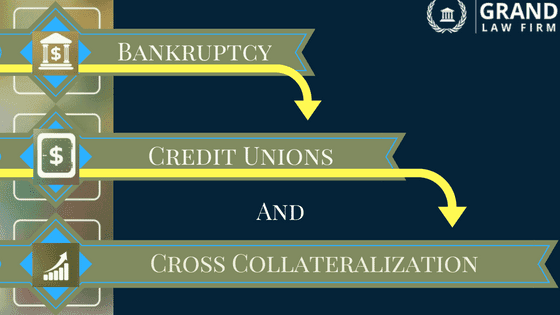Many people utilize Credit Unions rather than Banks when borrowing or depositing funds. Credit Unions tend to have higher yield interest rates and lower fees, but stricter lending policies. No matter the reason for picking a Credit Union over a bank, once you create one account with a Credit Union you become a member of that Credit Union.
Credit Unions were established as an alternative to traditional banks, with the purpose of serving a community of people who are brought together by a “bond of association” or membership. When you open an account and become a member of a Credit Union you are, in effect, becoming part of an organization, not simply opening a new line of credit. There are benefits to joining the organization such as there one-person-one-vote system of electing board members and, of course, the ability to borrow money from your new organization.
Since Credit Unions typically have lower interest rates than traditional banks, if you are a member then it’s likely you will also want to take a loan out from your Credit Union for your car or house. There is nothing wrong with taking a loan out from a Credit Union however, it is important to understand that there may be different repercussions in the event that you are unable to make payments on that loan on time and in full than when borrowing from traditional banks. This is where membership can become more of a detriment than a benefit; as a member of a Credit Union, when you take out a loan from that Union your loan documents will undoubtedly include a cross collateralization clause which could result in money being removed from your other accounts upon missing multiple loan payments.
What is cross collateralization and why do Credit Unions utilize it?
Cross collateralization is a means of securing a loan with all other loans and/or lines of credit that you (the borrower) have previously obtained. In the case of Credit Unions, cross collateralization is often used as a means to further secure repayment on a loan.
In the case of loans secured by collateral property:
Everyone knows that when you borrow money to purchase a car, the lender of those funds holds your car’s title until repayment is received in full, at which point the title is released to the borrower. In the event the borrower isn’t repaying his or her loan, then everyone also knows that the lender can and will move to repossess the vehicle. However, what many people don’t realize is that if they took their car loan out from a Credit Union then their Credit Union may take the necessary funds and late fees out of the borrower’s savings or checking account also held with that institution, or otherwise freeze all accounts until the payment is made.
In the case of loans not otherwise secured by collateral property:
Another example of cross collateralization is to secure a loan that would not otherwise be secured by collateral property. This means that if you have your savings and checking accounts at a Credit Union as well as a car loan and then you choose to add an additional line of credit by means of a credit card with the same institution, your car is now securing that additional line of credit.
What happens to cross collateralized accounts in bankruptcy?
When you file for bankruptcy debt relief, depending on the chapter and your personal circumstances, you may wish to reaffirm certain debts related to collateral property such as for your home or car. In the event that your car loan or home loan is through a Credit Union or otherwise secured by cross collateralization with another account that you have a debt on, the financial institution may require you repay the otherwise dischargeable debt in order to reaffirm your property. Additionally, the Credit Union has the right to close all checking and savings account upon receiving notice of your bankruptcy filing. To ensure you have access to your funds without interruption, you may want to open an account at a different banking institution.


